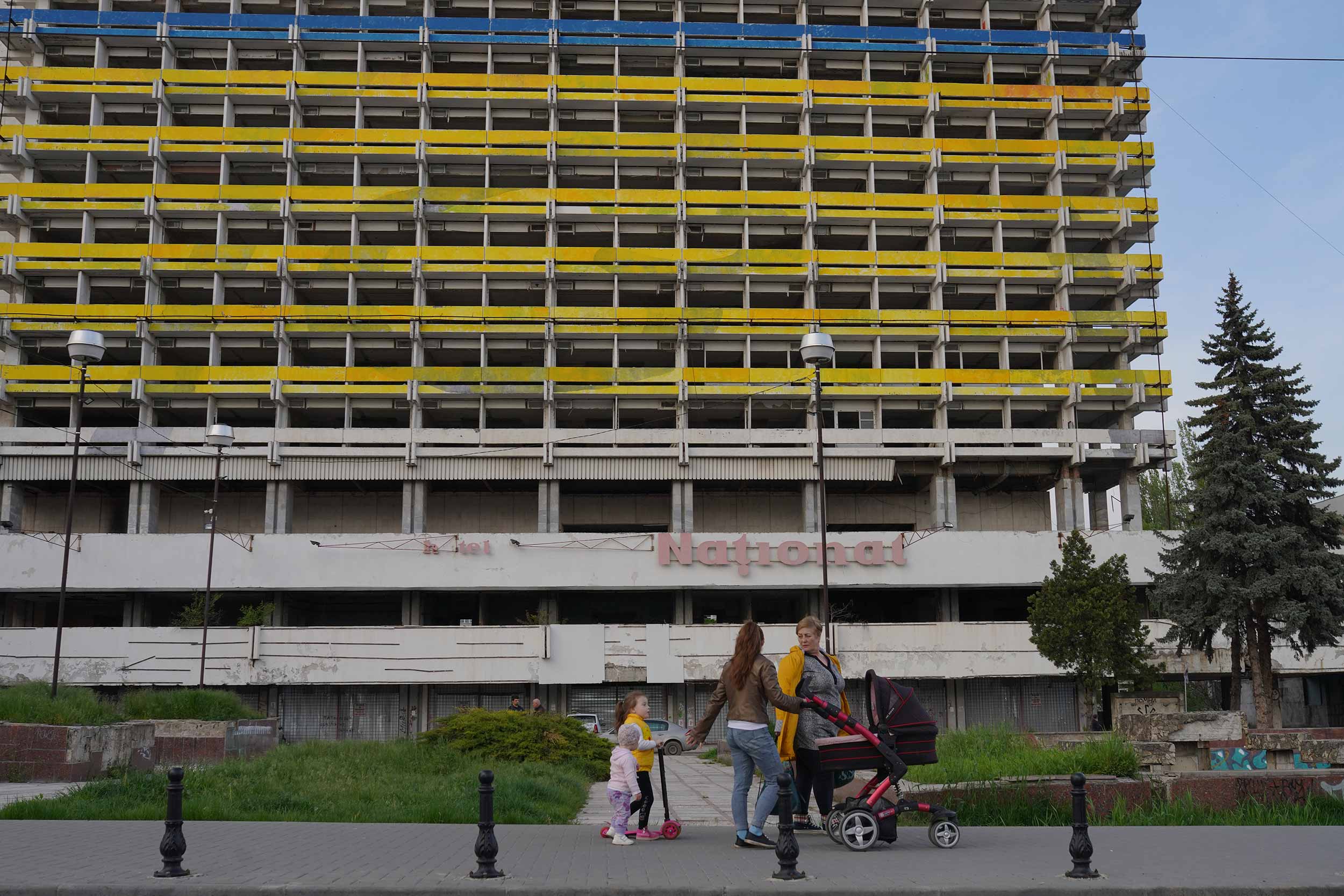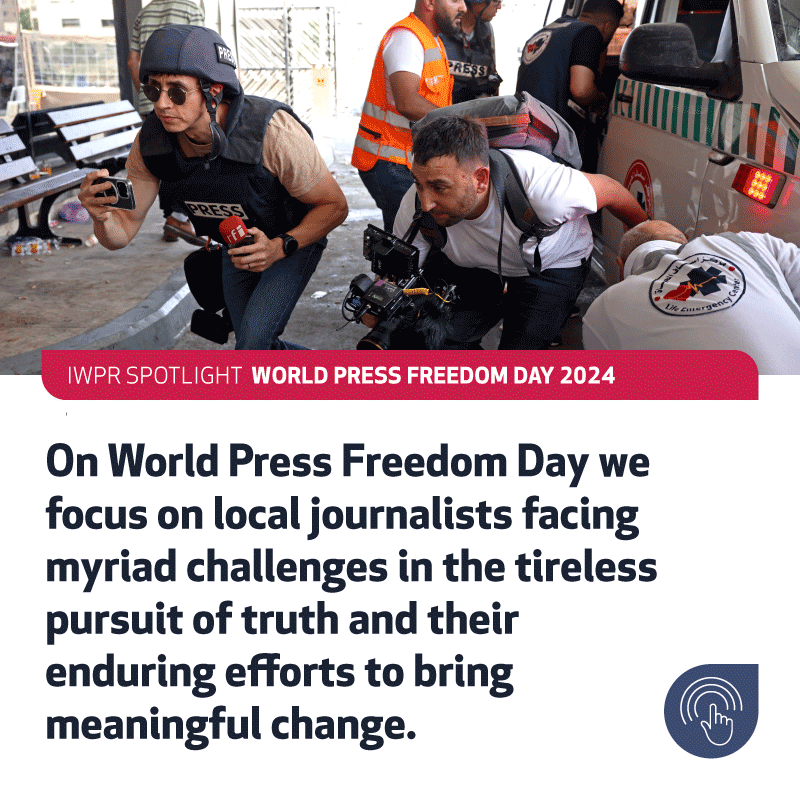Moldova Struggles to Balance Security and Free Speech
Opinion remains divided on how effective bans on pro-Kremlin outlets have been in protecting country’s information space.
Immediately following Russia’s full-scale invasion of Ukraine, Moldova declared a state of emergency under which a whole swathe of pro-Russian media was banned.
The broadcasting licences of 12 TV channels were suspended and more than 70 news websites blocked on the basis that they posed a danger to the country’s information security.
More than two years later, and despite the end of the state of emergency, all these outlets remain blocked – but Moldova remains an attractive target for Kremlin propaganda and disinformation across a range of platforms.
“Peace and security take precedence over freedom of the press if that press abuses its freedom.”
In a year that will be marked by presidential elections and a referendum on accession to the EU, opinion remains divided on how effective the bans have been in safeguarding Moldova’s information space.
Media experts note that numerous pro-Russian outlets simply shifted their work to other platforms. Shortly after the TV channels were suspended, some programmes migrated to other TV stations or online. Many of the banned domestic websites made clones which ensured that citizens continued to have unfettered access to them.
"Those who believed that freedom of expression also meant legitimising the war have continued to make use of this right to the present days,” said Ion Bunduchi, executive director of the Electronic Press Association. “If the audiovisual information space has improved somewhat, the online space remains just as toxic.”
Those backing the broadcasting sector also simply reorganised their portfolios, he continued.
“The suspended channels previously formed media holdings - of the fugitive oligarch Vladimir Plahotniuc, of the fugitive Ilan Shor, sentenced to prison in the Republic of Moldova, and of the Party of Socialists, an important pro-Russian party. Shortly after the suspension, attempts to create new holding companies have continued to this day. The most active in this regard is the so-called Shor group. So the media landscape will most likely continue its metamorphosis.”
In a report published last December, the Independent Journalism Centre noted that the failure to combat cloned websites and apply counter-disinformation mechanisms to in broadcasting "speak of the ineffectiveness of the measures imposed by the authorities".
“Shutting down media cannot be considered a guarantee of security.”
Media lawyer Cristina Durnea noted that the legal basis for the bans remained thin, “The perception persists that the suspension of TV licences became at that time a readily accessible tool, facilitating swift but temporary solutions to select issues.”
She said that it was key to keep the wider picture in mind.
“It is crucial to emphasise that in democratic societies, fundamental human rights, legal procedures, social, economic and political pluralism, as well as press freedom, must be safeguarded,” Durnea said.
Other experts explained the short-term nature of the government’s moves.
“Shutting down media cannot be considered a guarantee of security. Although it may be perceived as an unpopular measure, using this strategy in the fight against disinformation brings immediate benefits by eliminating false information that could undermine social stability and cohesion,” said Ștefan Țîbuleac, head of the Supreme Security Council Service, an advisory body to the president of Moldova. “But it is essential to acknowledge that blocking one media is no guarantee that similar sources will not appear instead.
“It is essential not to limit ourselves to punitive measures on this issue, but to take a proactive approach aimed at educating the population and strengthening the security culture,” he concluded.
Arcadie Barbăroșie, director of the Institute for Public Policy think tank, agreed that while bans had an immediate impact, longer-term steps were needed for effective action against disinformation.
“I think the information space has become healthier, but it is still subject to dangerous influences,” he said. “Medicines need to be invented for these 'diseases', which is not a simple task. It is only recently that solutions against disinformation in online or on social networks - platforms that massively influence our voters - have started to be discussed at a European level. But we have no other choice; we have to try to get ahead of the process, not run behind it.”

Perceptions Within Society
The move to ban the media was not overwhelmingly popular. A national survey by NDI Moldova in mid-2023 showed that almost half of citizens (47 per cent) disagreed with the decision to suspend TV stations, with Russian speakers or those with pro-Russian views particularly critical.
A subsequent Public Opinion Barometer survey in August 2023 showed that about a quarter of citizens trusted the Russian media and felt that Moscow was right in the armed conflict with Ukraine - a percentage that had actually grown slightly since the previous year.
“This is about 20 per cent of the population who have always been pro-Russia and pro-Putin,” explained Barbăroșie. “They will never be redirected no matter what action is taken. Of course, the state has to keep making efforts, especially in the districts where the information disaster is happening on a massive scale; keep communicating, working with citizens in small groups, convincing them that buying votes is not an option, etc. But things will not happen overnight. A citizen does not suddenly become more informed the next day. That's why we have to push forward, to rally around the idea of EU membership, of building a society that chooses a secure future and not war.”
Representatives of the banned media and opposition parties continue to decry the ban as censorship.
"The dozens of channels and hundreds of websites that the ruling Action and Solidarity Party [ASP] shut down were popular in Moldova,” Alexandr Nesterovschi, deputy of the Bloc of Communists and Socialists, told parliament in April 2024. “Each of these media outlets had a large audience and was critical to the government. As a result, after the ASP’s clean-up, Moldovan citizens are forced to swallow only the toxic stuff promoted by them… unfortunately, the remaining media sources are directly controlled by ASP, so there is a lack of access to objective information in the country, and a lack of at least some freedom of speech.”
Media experts agreed that finding a balance between security and free expression remained a challenge.
These two factors were inextricably linked, Țîbuleac emphasised.
“In a democracy, protecting freedom of expression also means protecting national security,” he said. “This interconnection means that security cannot exist without an environment in which ideas can be expressed freely, while freedom of expression is meaningless without a secure framework to protect citizens and state institutions.”
Bunduchi argued that Moldova was far from alone in struggling with this dynamic, with no clear cut answers to what was increasingly a global challenge.
“Peace and security take precedence over freedom of the press if that press abuses its freedom,” he said. “We have ended up with a major war at the border, a situation which we have never had before. Therefore, nobody knew - and probably still does not know - how best to proceed in order to have both peace and freedom of expression. We know for certain that in an emergency we must act promptly. How to act both promptly and correctly - who can know?”

